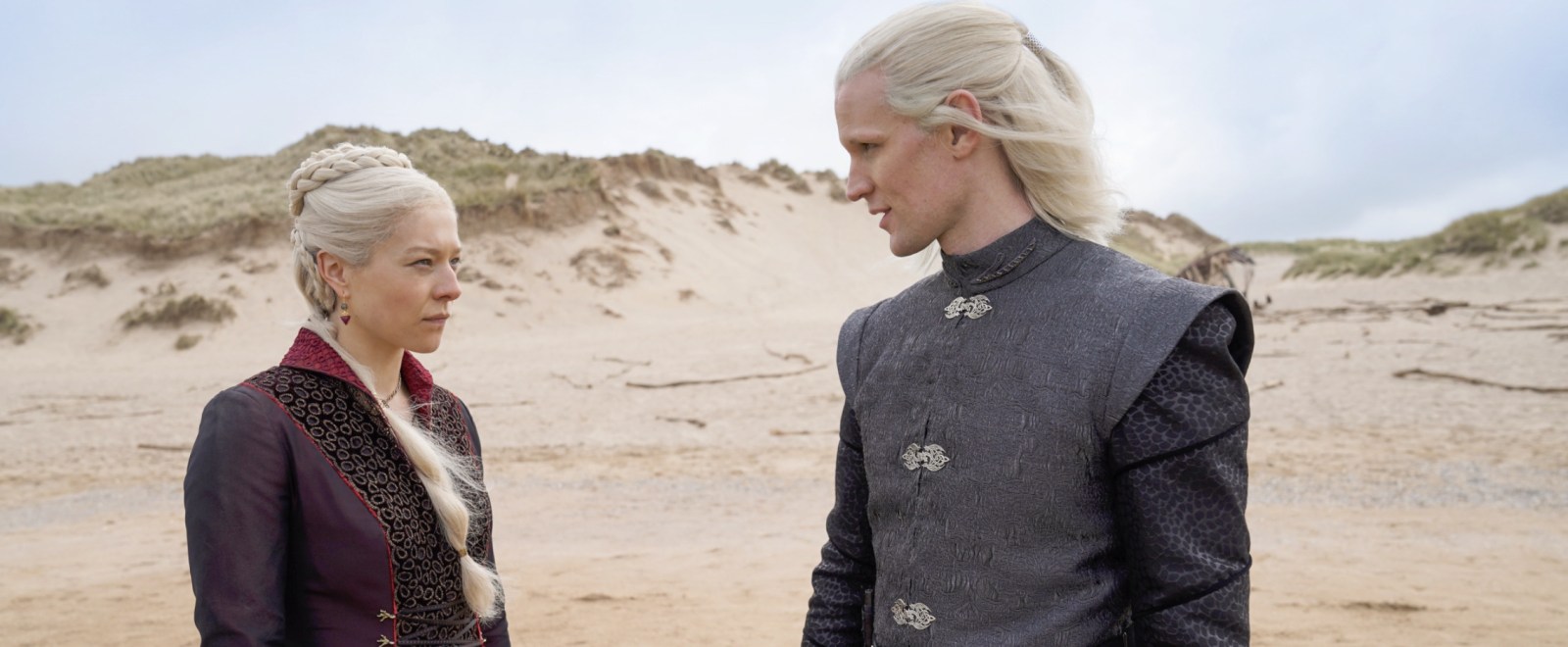
On House of the Dragon, time is precious. Episode by episode, time passed offscreen, whether it be six months or a year. Over the course of the first five episodes, a few years had passed within the show. These small but significant time jumps established ongoing rifts between the Taragaryen family – namely King Viserys, Daemon, and Rhaenyra – as well as the simmering tension between former besties Rhaenyra and Queen Alicent.
By episode six, the series jumps forward a decade, and in doing so recasts several actors — including the Rhaenyra and Alicent with, respectively, the excellent Emma D’Arcy and Olivia Cooke. In this episode, Rhaeneyra and Alicent, although the same at their core, are different people. Time has changed them like it does all of us. Rhaenyra, who always longed for a different life than a royal one, is reckless with her suitors and has several children. Alicent has followed in her father Otto Hightower’s footsteps by trying to have some power in King’s Landing.
The time jump isn’t getting the warmest welcome. It feels a bit like the audience was cheated out of years worth of content because we were robbed of watching Rhaenyra and Alicent become these people. But that’s not a con, that’s the point.
House of the Dragon isn’t interested in being like Game of Thrones, which followed the POV structure of George R.R. Martin’s books. Game of Thrones’ intimate, patient (until the end) narrative style invited the audience to engage more (and even too) deeply with the world of Westeros. The Dragon Show is also hardly the first television series to successfully use time jumps to accelerate the story and advance the characters. Between seasons and episodes, Mad Men jumped forward in time months or more. The gap in time lost with the characters made them even more mysterious and appealing: knowing that we missed months of Don Draper’s life kept the intrigue.
Another AMC show, Halt and Catch Fire, jumped ahead four years in its season three finale and in doing so, skipped major events in the characters’ lives. This skip got the characters exactly where they needed to be for the fourth and final season. For its final season, The Americans jumped forward in time from 1984 to 1987. Doing so didn’t rob the audience of character development. When the writing is incisive and the acting superb, witnessing every moment is unnecessary.
House of the Dragon has no interest in that: it breezes past the small moments and follows the broad strokes, making the show a bit easier to watch in that you can simply watch it and understand what’s happening and who is who without spending hours on the A Song of Ice and Fire Wiki. In essence, it is more of a television show. Personally I love that. Leading up to its premiere, I loudly told many people that I have no interest in engaging with House of the Dragon beyond its Sunday night slot. I’m thinking about it a little more than I wanted or expected, but I am not thinking about it so much that I’m losing sleep or brain cells.
House of the Dragon’s audacity to skip ten whole years shows confidence in itself. The writers knew that if it had given us that whale decade, or even some of it, the show would have become redundant. After already showing how things go wrong leading up to the inevitable war this show is about, seeing tensions rise and fall over and over might be illuminating, but redundant. In essence, the House of the Dragon time jumps have saved the audience a lot of energy. The show simply is what it is: a soapy family drama with dragons in it.
